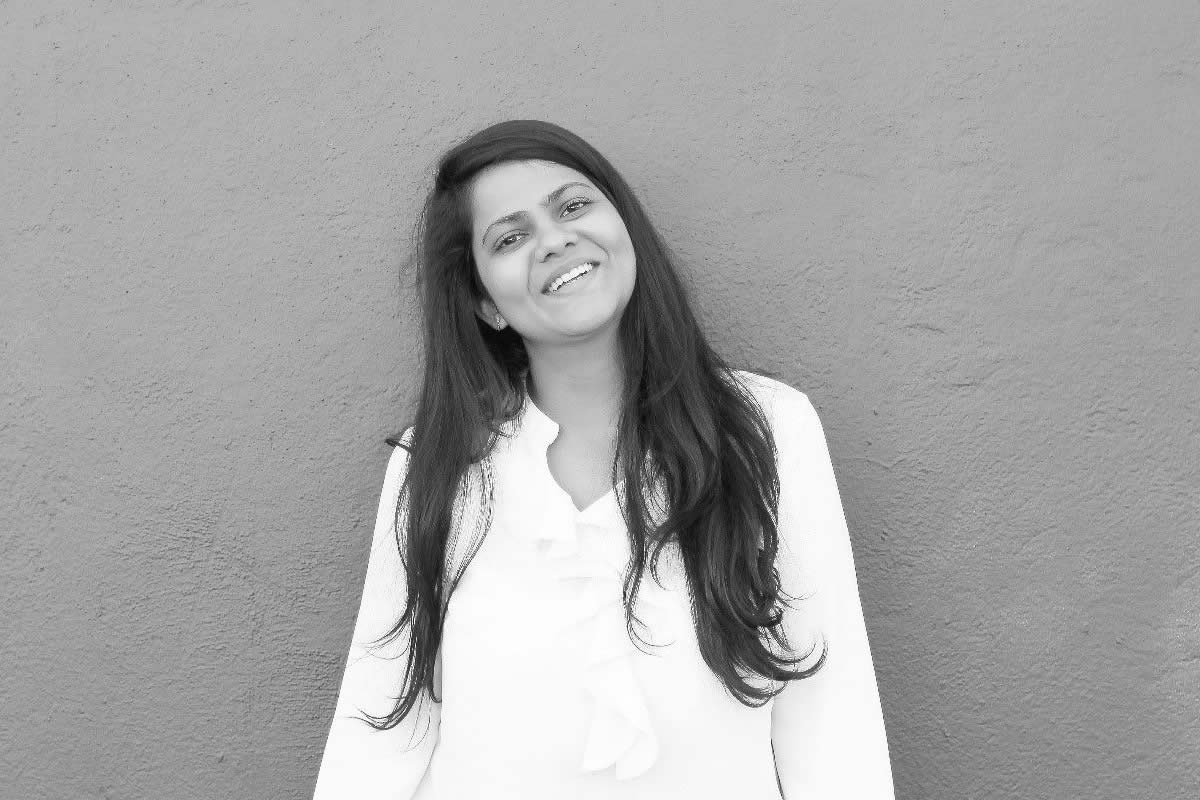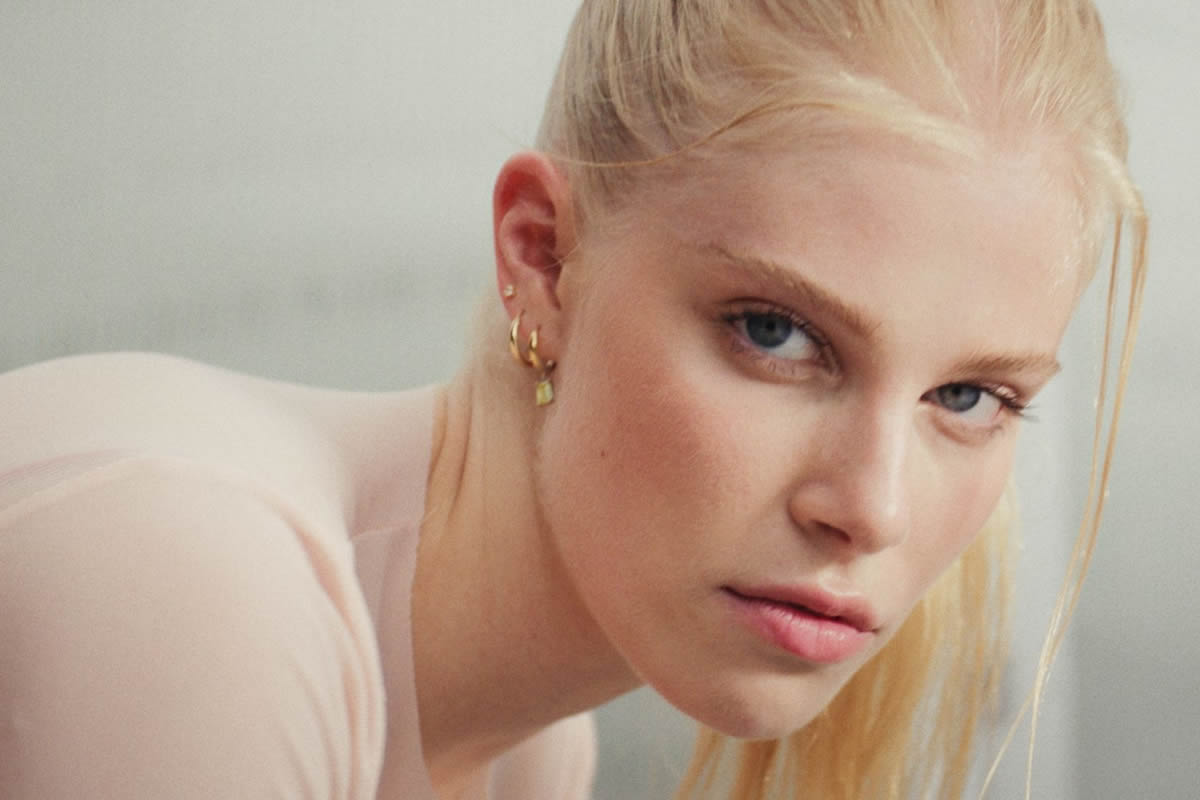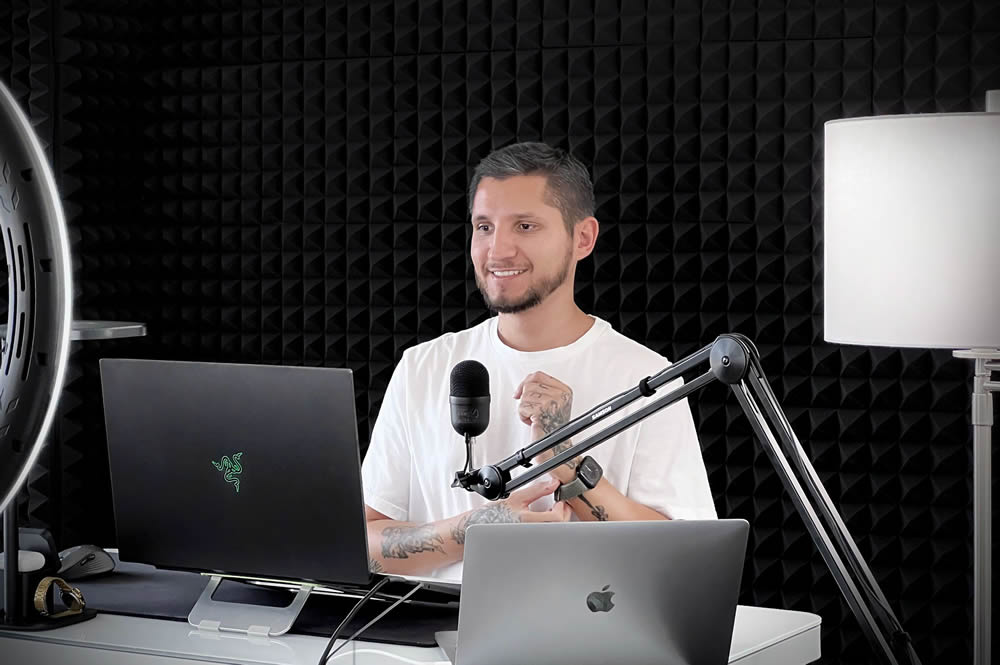Reuven Halevi born in Oslo, Norway. He also spent his time in Rome, New York, and London. In this fine interview with 121clicks.com, Reuven shares some wonderful thoughts with us. Speaking about Reuven photographs, there is a crafty technique of playing with colors, composition with a perfect blend of shooting that interesting moment well readable in each photograph here. Thanks, Reuven Halevi for accepting our invitation. Please Read on…
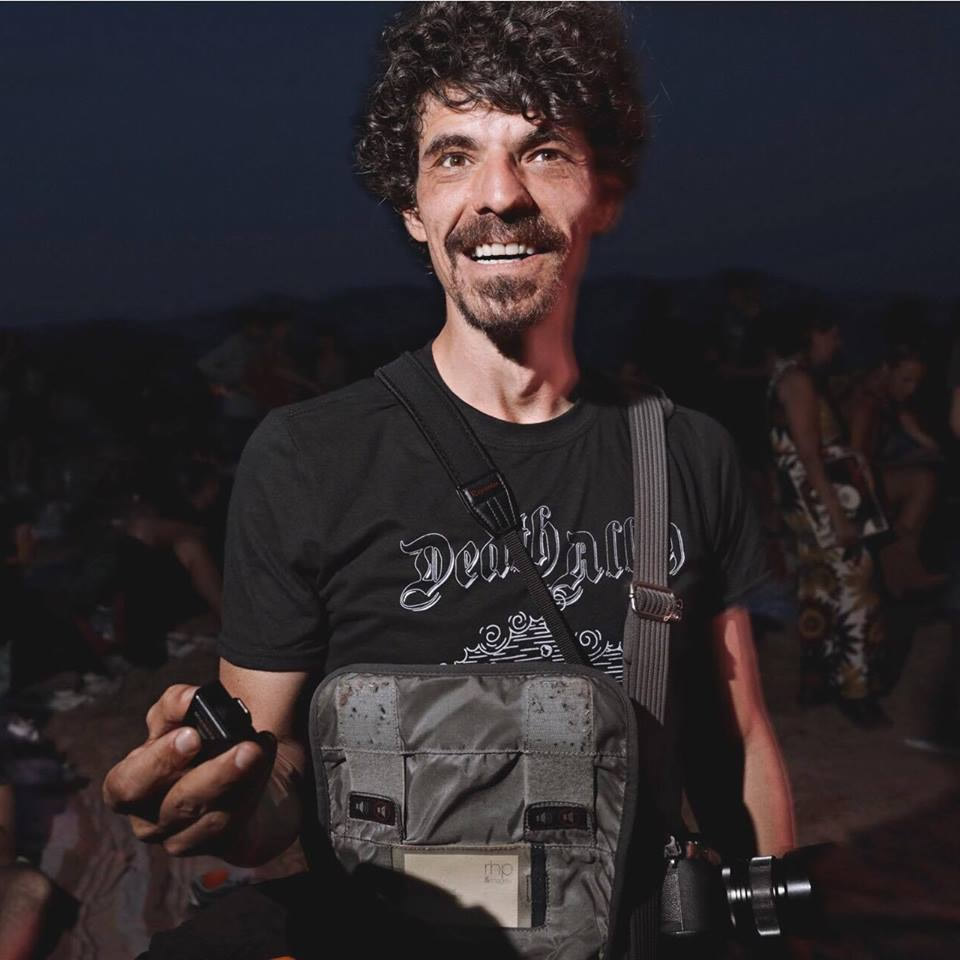
Hi Reuven, could you tell us a bit about yourself and what you do?
Hey there, sure, with pleasure.
I was born and spent the first half of my life in Oslo, Norway, while the second half has so far taken place mostly in Rome, with a couple of years in New York and London thrown in for good measure. To me perception is a strongly visceral thing, be that visual, aural, tactile, whatever form. As a kid, I did a lot of drawing but I come from the stage. After years of classical ballet, I moved to Rome where I graduated with a MFA degree in theatre directing. I then directed for the stage for almost ten years before discontent with the nature of that medium finally made me come to a halt and to start looking for other means of coping with life through expression.
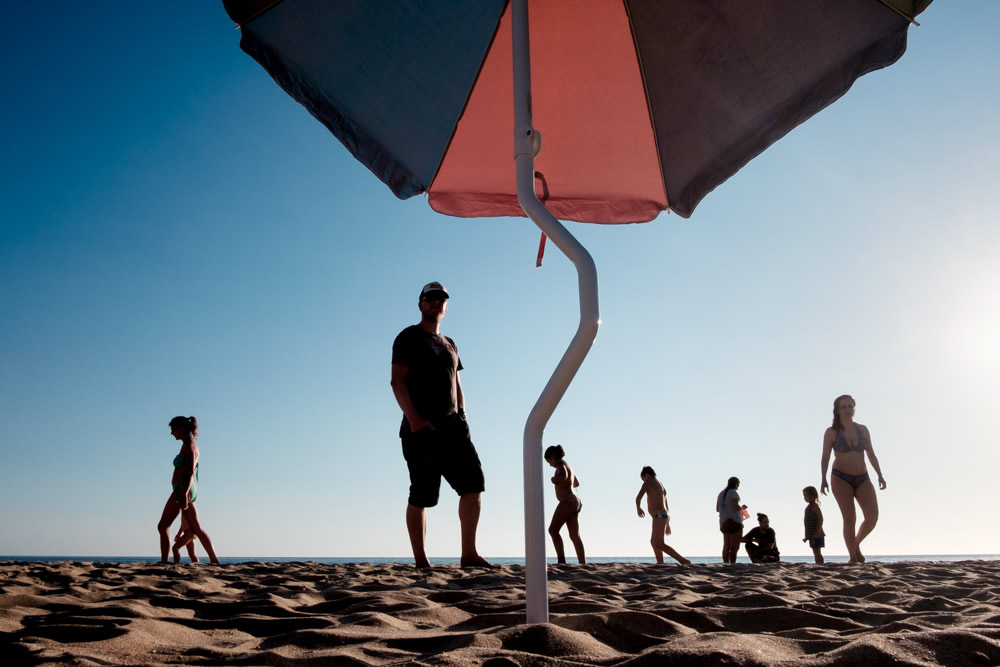
What first drew you to photography and how did you discover it?
I have naturally always been extremely attracted to the still image in any kind of manifestation. That is profoundly human, as evidence would suggest. It is hard for me to pinpoint a precise moment of discovery of photography. To do so would be like writing my own origin story. But sometime back in the last century I had this Czech girlfriend whose father took part in the Prague Spring of 1968 and after the crackdown by the Soviet Union and the Warsaw Pact had fled Czechoslovakia. As a boy in love in his early teens does, I did a lot of research, read all the novels by Czech writers I could get my hands on and soon come across Josef Koudelka’s photos from the invasion. That was riveting and had an immense impact on me. I think that really opened my eyes to the power of photography. Later, when seeing Philip Kaufman’s The Unbearable Lightness of Being, based on Milan Kundera’s novel set in Prague before and during the popular uprising, and how photography was used as a narrative tool in the storytelling, its surprising adaptability in transitioning from erotic toy to a tool of political reportage, I had gained a sufficiently romantic notion of it that my interest was kindled forever.
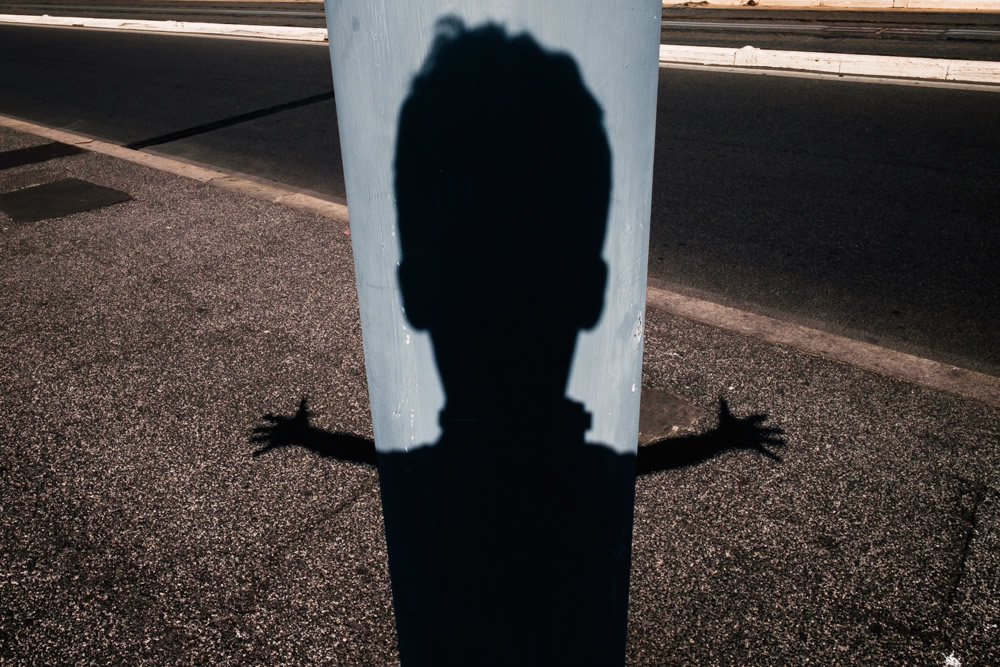
How did you develop an interest in street photography? What kind of human activities and street elements do you like shooting most?
Again, we are talking about the development of this interest, something that does not happen overnight. I think that over the years I simply came to the conclusion that some photographs touched me more than most any other form of artistic expression, except for music, and that in common these photos had two things: they were powerful because their impact could never truly and fully be explained in words, and that they were all candid shots that via the photographed deferred to something other than the physically photographed, to some other dimension, something deeply poetical, sometimes archetypal, always mysterious and indisputably non-verbal. At this point in my life, since I don’t play a musical instrument well enough, it is still the most intriguing potential any means of expression has to offer me.
I like to shoot what is in-between, the unsaid, moments of transition where reality is neither this or that. The metaphysical. Dense emptiness. Vacuums. Something that spurs a visceral recognition of a living symbol, something that throws you into realms without words.
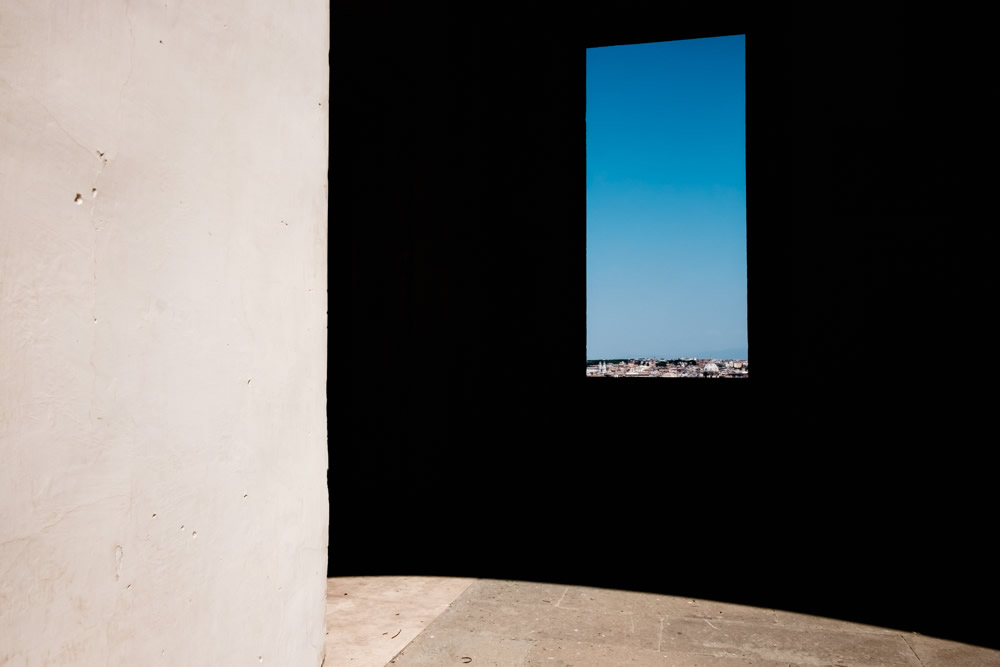
What do you think makes a memorable street photograph?
To me it has to first and foremost hit me in the gut. Immediately. Before I’ve even begun to grasp what I am looking at. The intellectual satisfaction, the appreciation of the “genius” of the tradesman’s handiwork is secondary, a bonus, if you will. The composition, the included and excluded elements, the layers, resonances, and juxtapositions, what have you… Wonderful and necessary, but secondary to the raw emotional impact. A good photograph is understood in a split second, before the intellect sets in and starts understanding, analyzing. A memorable street photograph, as any photograph, will always convey the verbally inexpressible and retain that quality even after exhaustive analysis.
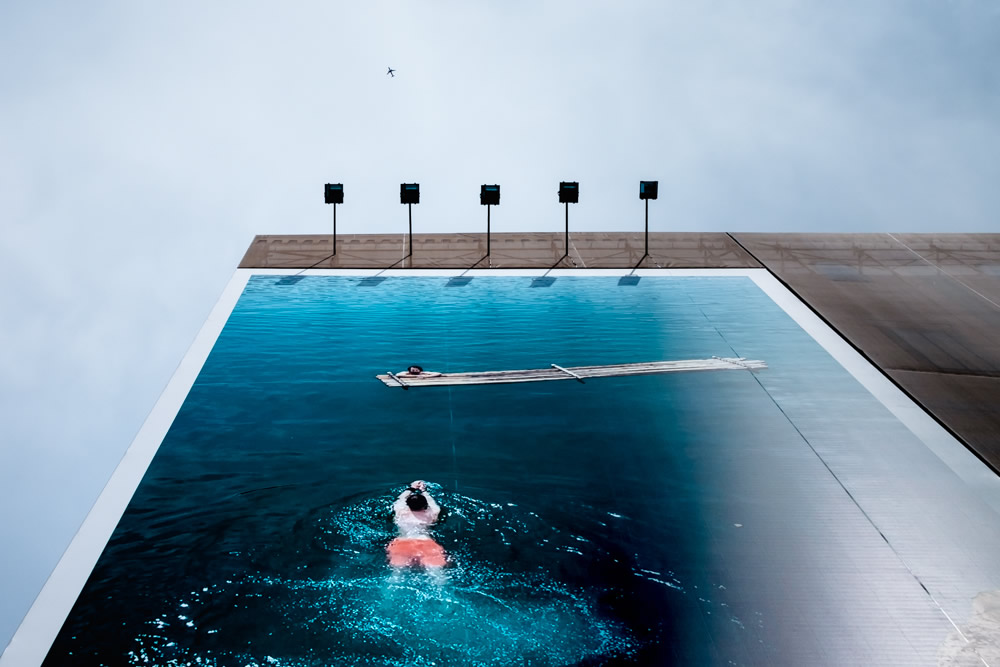
What do you want your viewers to take away from your work?
Ideally, though I believe impossibly, a perspective that inundates the viewer with a primordial love for humanity, as a celebration of the phenomenon of existence. Notwithstanding the overwhelming cruelty that permeates our world and that we pretend is normal. Notwithstanding social injustice and inequality, rampant global fascism, the governance of bullies, how we abuse our planet and every living creature that inhabits it, etc., I hope my photos may stimulate empathy for the entirety of humanity. Well, at least I’m ambitious!
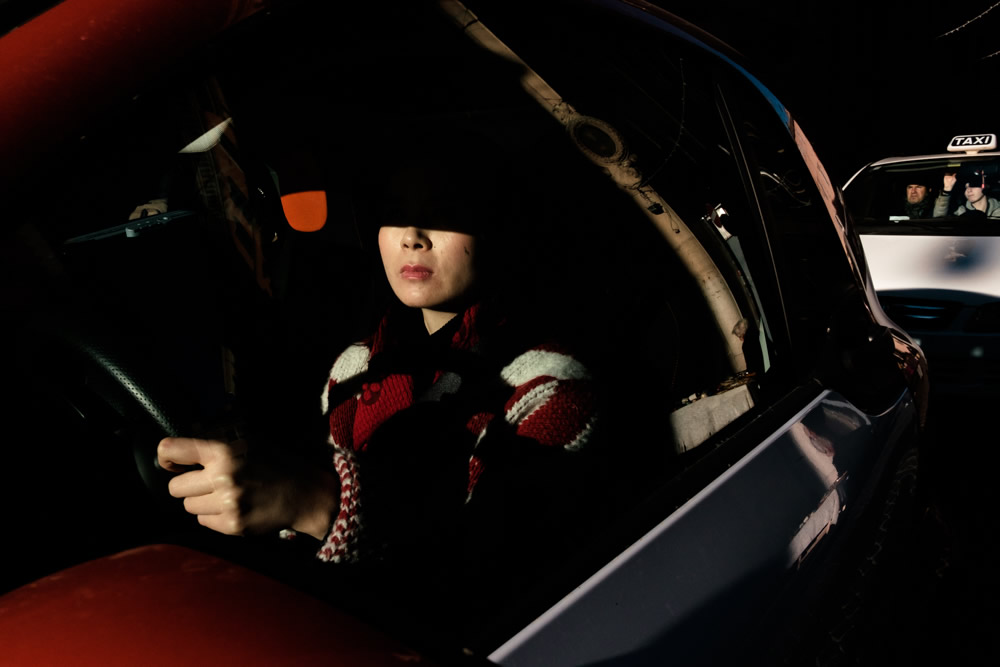
What are your thoughts on working on single images versus projects?
That that is something I have many thoughts about. I can’t take one side as opposed to the other. After my refusal of dramaturgy, I am not looking to narrate anything through my photos. A project means some sort of narrative flux and cohesion between the photos, which tends to want to tell a “story”. Of course, all the time a single photo is celebrated for telling a story, too. But the series is by its very nature more dramaturgical. So most of my street photography work consists so far of single photos. But in a couple of months, I will embark on a project that leans towards reportage, and I am extremely excited about it. They are two different tools. It all depends on which tool is best suited for what you want to do.
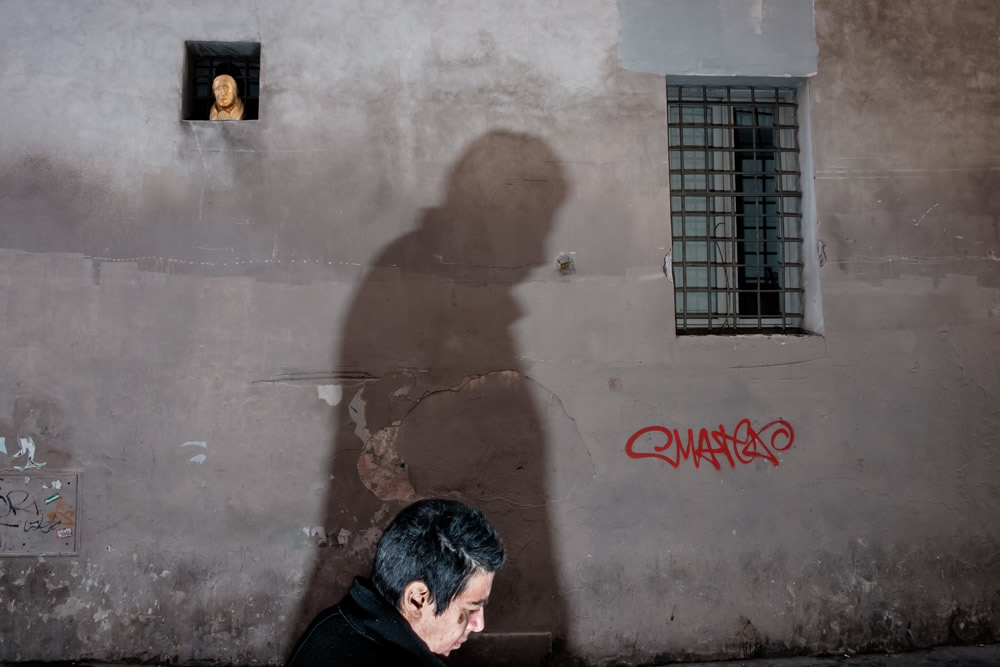
What do you think about contemporary street photography?
Bustling. Intriguing. Confused. Overcrowded, but interestingly so. Still pubescent, but with a promising future.
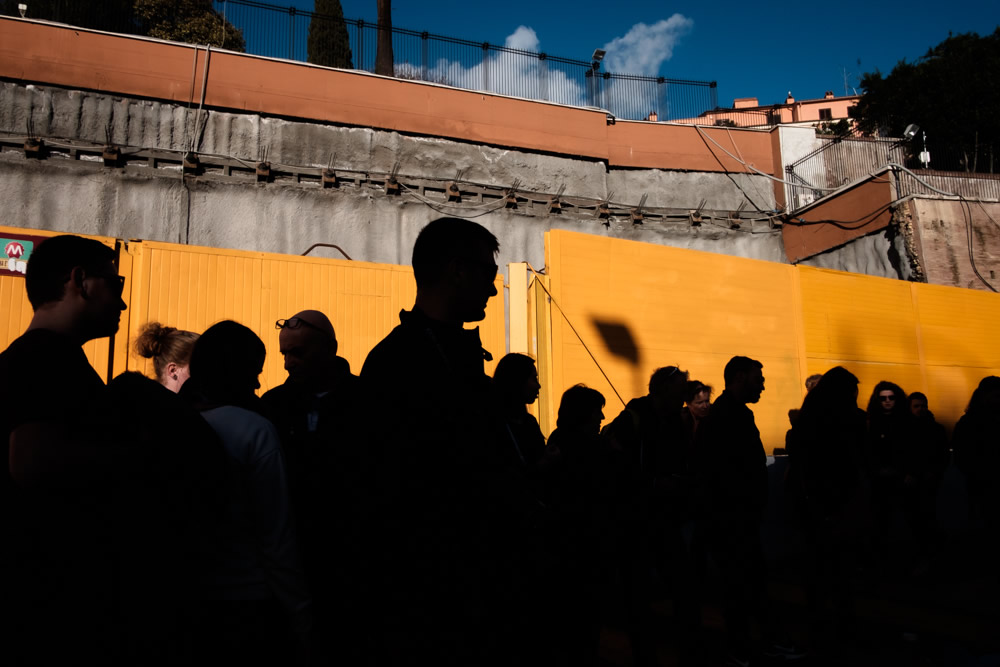
What do you think are some clichés in street photography you steer away from yourself?
I don’t steer away from anything, per se. We all know that old adage, everything has already been said and done. We are left with the task of reinterpretation. Cliches are just that much harder to reinterpret in a way that really adds something new, skews the perception of it just enough that one can appreciate it anew. I’ll photograph pigeons and umbrellas if I think I can do it in a way that surprised me. But I don’t go looking for them, that I have to admit. Same thing goes for juxtapositions in all its many manifestations. It is also a bit outside my skill set, maybe even interest, but that’s a different story. Then of course there are the rules of ethics, like not photographing the homeless for the sake of photographing them. We don’t photograph those whose only private space is public space. But that’s not even a cliche to me, it’s just amateurish. But even a homeless person can appear in my photos, though only in an auxiliary capacity by adding something gestural to the photo. So basically, I steer away from nothing.
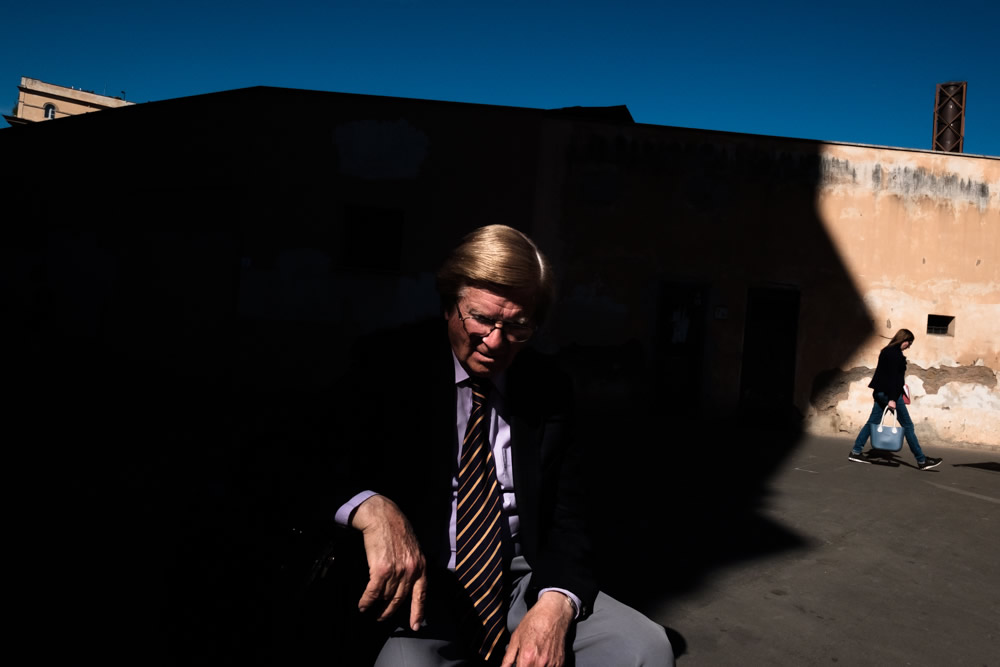
Few Words about your Workshops?
That I feel very comfortable with the one-on-one version of them. With groups, certain mechanisms arise that I believe disperse energy and concentration. I really like dedicating all my attention to a single person, and I feel I can convey a lot more like that. Right now I offer private workshops in Rome, but in addition to these, in a couple of months, I will do the same in Oslo. I have a strict policy of telling people that there is no way I, or anyone else, can “teach street photography”, least of all in a couple of days. What I prefer is to do portfolio reviews before the workshop and follow up afterwards on the shots taken during the workshop, and give the best and most helpful considerations I can offer, in the form of a dialogue with he or she who chooses to join me. And during the workshop itself we will take on many of the topics that most often will come up in Q&As, ranging from camera settings to how to face the fear of “shooting people in the streets”.
There must be specific reasons why one would want to chose to do a workshop with me as opposed to someone else, and these reasons transcend the purely academic and become uniquely personal.
So to do a workshop with me means spending time out there shooting together. I think the kind of intimacy that is born is somewhat comparable to how I work with an actor. Together we will apply different methodologies, my methodologies, to solve specific tasks. We will experiment with practical approaches to the subject. Work on looking, listening, responding and preempting events in the scene we are in. How to be fully immersed in the world while at the same time maintaining a critical, “outside” vision of it. How to always, incessantly work off of the other “actors” out there, sharing the stage with you. What I want to do is to convey an attitude towards the “streets” as a place of communal experience. This will make you feel less like a thief of images, which as an attitude distances you from what is around you, creates contrast and conflict and makes it a lot more difficult to see and hear. Ease up, go with the flow, be one of many, tap in and conserve (press the shutter button) the best moments. To take a picture to me is in the end a loving recognition of what it is to be human. This is what I want to give a taste of in my workshops.
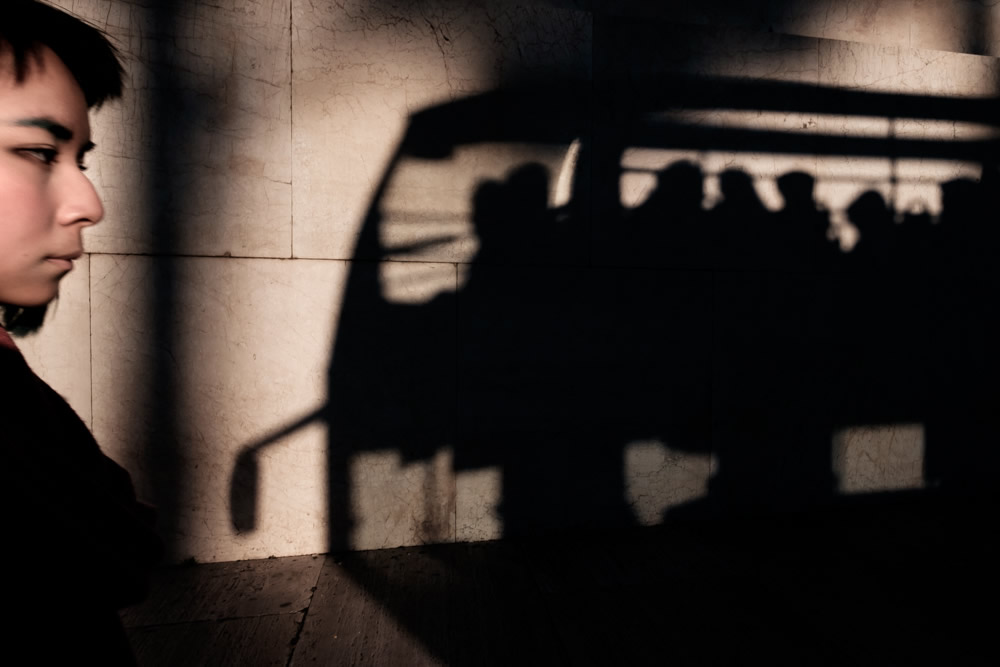
Who are some of your favorite classic photographers, and how did they influence you?
Not sure if he classifies as “classic”, but it seems to me that the photographer who has steadily gained influence on my work is William Eggleston.
There are so many and also quite different from each other. Frank, Friedlander, Winogrand. The aforementioned Koudelka. Kalvar. Gruyaert. But I am really not sure how these super heavy weights have influenced me. Except for keeping me always hungry to improve, expand, squeeze the lemon, break barriers, throw out everything and start anew.
But I always claim that I am at the centre of my referential totality, I am the sum of it. I was born into and channel my culture, every experience I have had has informed me and make up who I am today, how I conceive of the world and ultimately how I express myself. I believe that to attempt to define how a specific experience, or photographer, influences me, in this context, is more a question of authoring a narrative about myself rather than a scientific analysis. I could say that I am as influenced by the metaphysical paintings of the Italian Futurist Giorgio De Chirico as I am by any photographer.
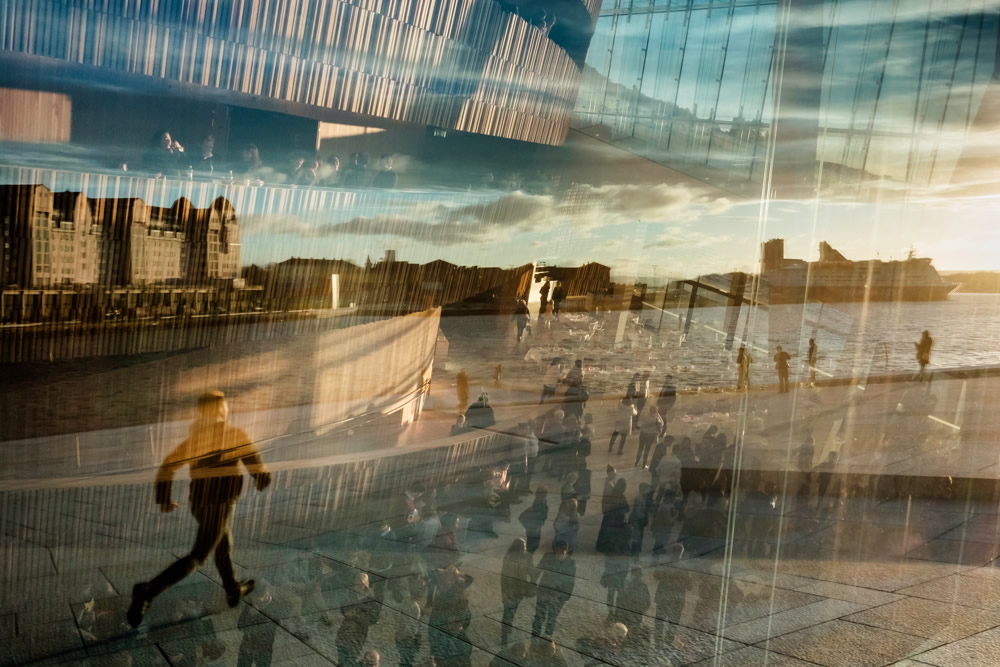
What are some of your favorite books on street photography?
Again, it feels I’d be only partially honest to pick just a handful. Also because a year from now that list would change completely. I could say William Eggleston’s Guide by John Szarkowski. Or just simply Robert Frank’s The Americans.
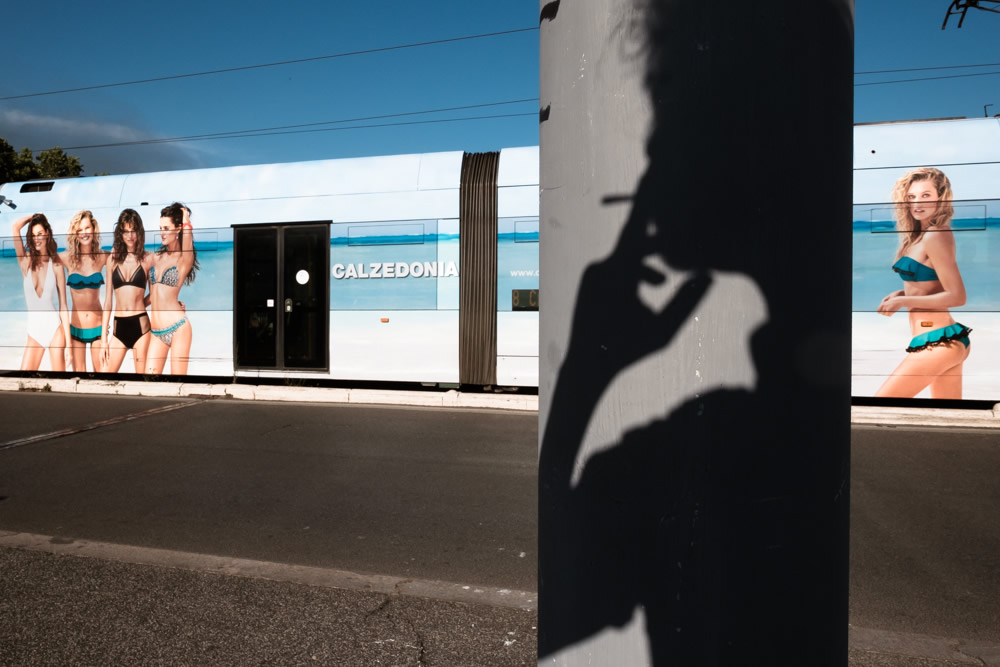
Your Gear?
Fujifilm X-T2 and Fujinon 18mm and a Leica M2 with a Summaron 35mm. Sometimes I use a handheld flash.
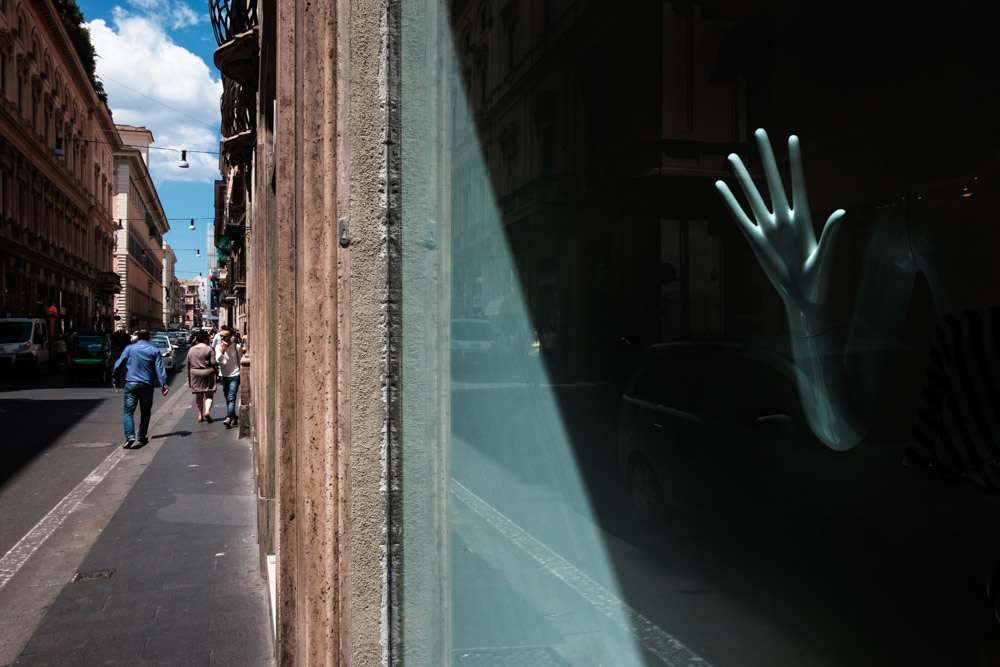
Any final thoughts and words of advice for your fans and our readers?
First, it sounds really weird to have “fans”. But it’s nice, of course.
I’ll bullet point this and first say…learn the craft to the point where it becomes second nature, and then start trusting yourself, let yourself loose, free yourself from academia.
Have fun! Sometimes out there, especially when I do my “Photo Performer” shots (playing with my own shadow), I laugh out loud like a madman and people cross to the other side of the street. That’s just an example. But the spirit is important, I think, and will be reflected in the shots.
Be yourself. Now this we all know, and it goes for everything in life. But I think it is the single-most difficult challenge you will ever face. And 99% of the people who think they are “themselves”, are not. Emulation is a tool for learning, and a good one at that, but then go do your own stuff.
Learn to not take a shot.
Be patient. Growth takes a long time. If one is really lucky, one never stops growing.
Learn to let your photos decant. It will be so much simpler to recognize if you have something really good or not.
Be skeptical of cliches, like the ones we spoke about earlier. If you wanna do them, do them better than anyone else, and in a new and unexpected way. Really re-interpret them if you have to do them.
Less is more. (Unless more is more).
There are 100,000 rules in street photography. Learn them all. Sometimes to abide by only one of them is sufficient. Sometimes two. Sometimes thirty-three are needed. No one of them is necessarily more important than the others. Pick and chose. Every time. Learn how to use them, bend them and shape them according to your needs.
Learn to put yourself in the condition in which you make intentional, informed mistakes.
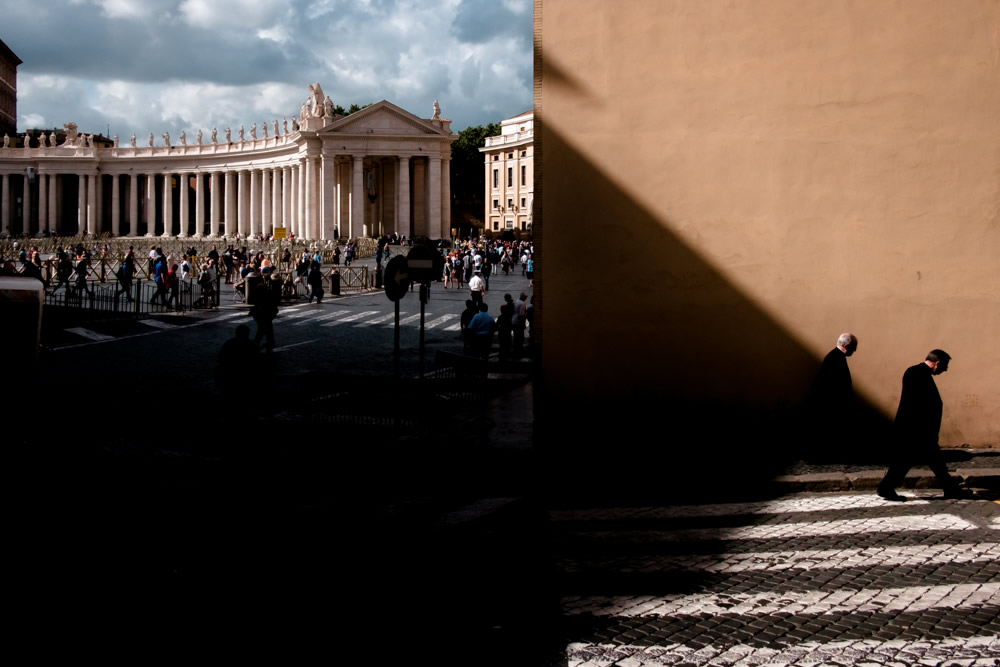
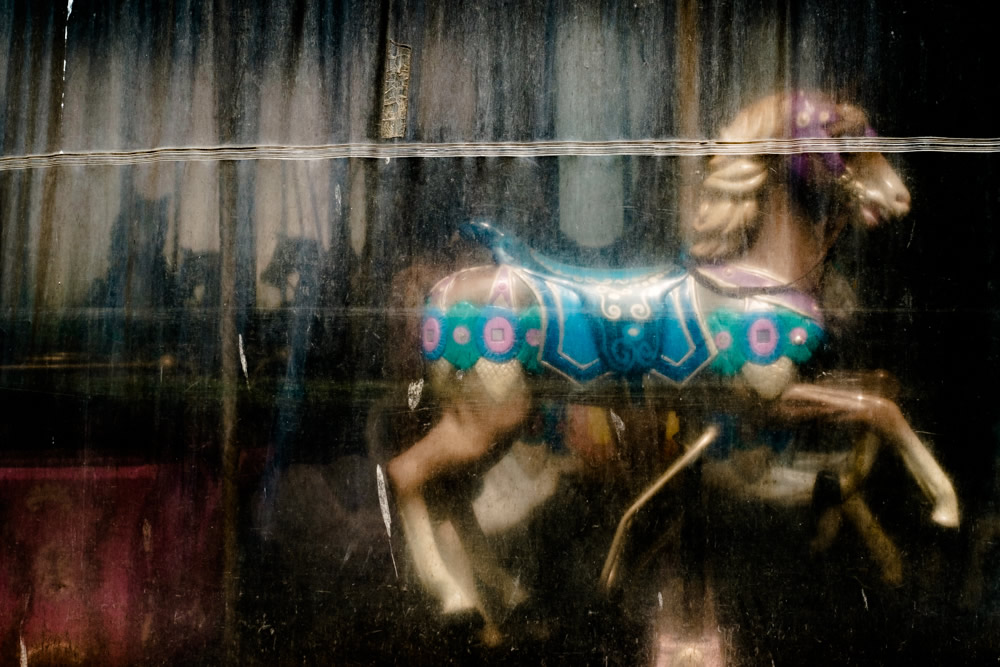
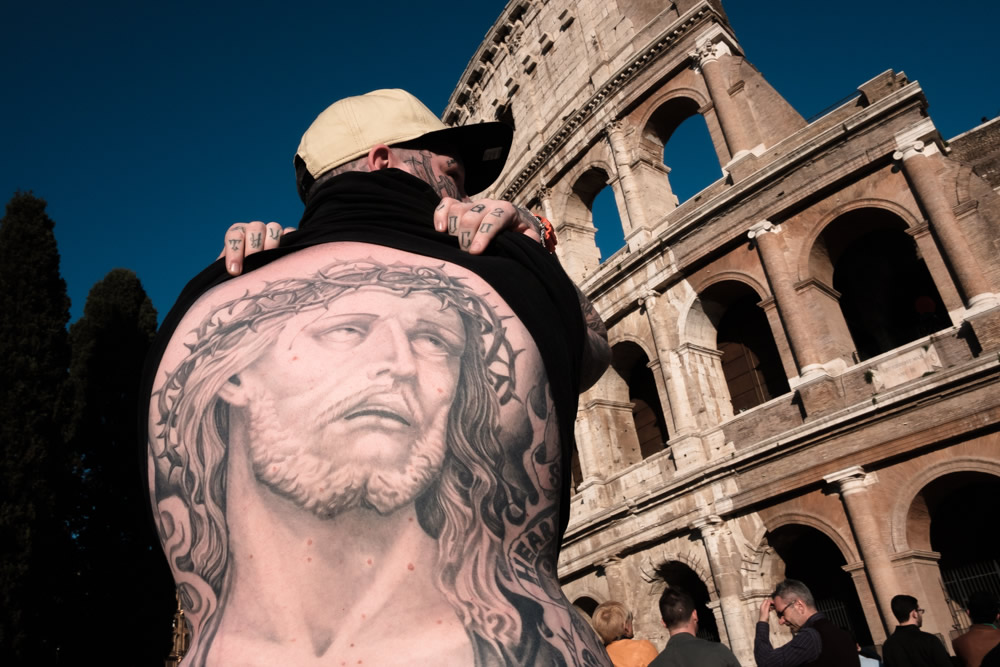
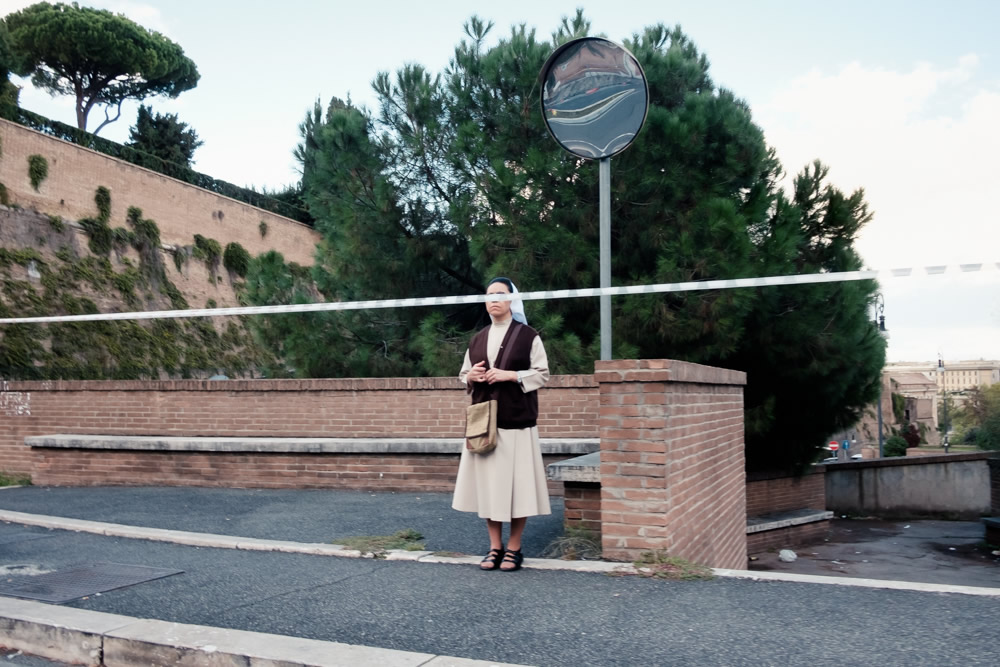
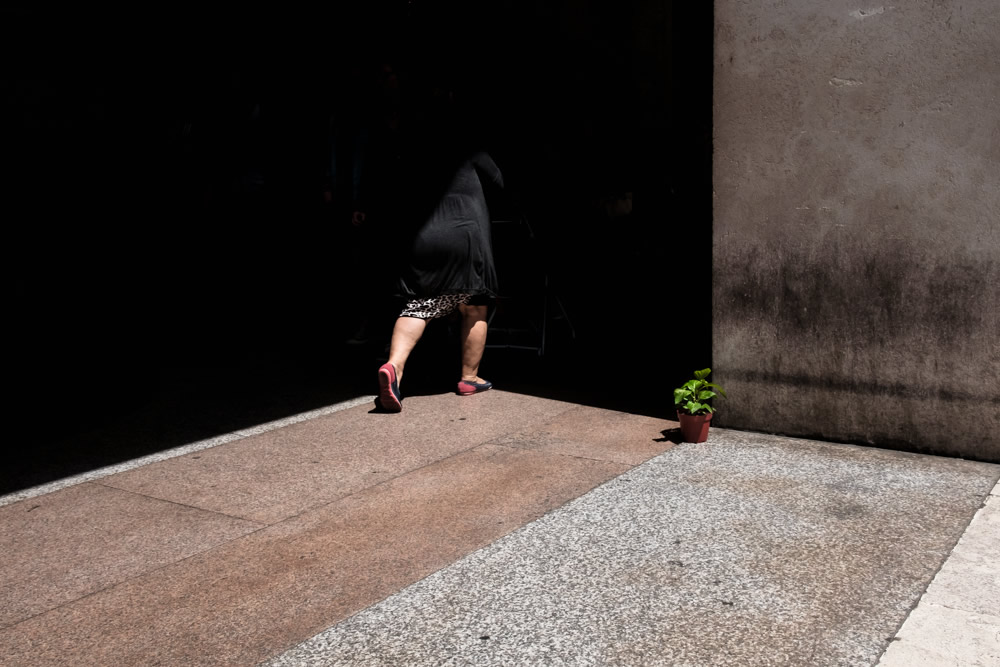
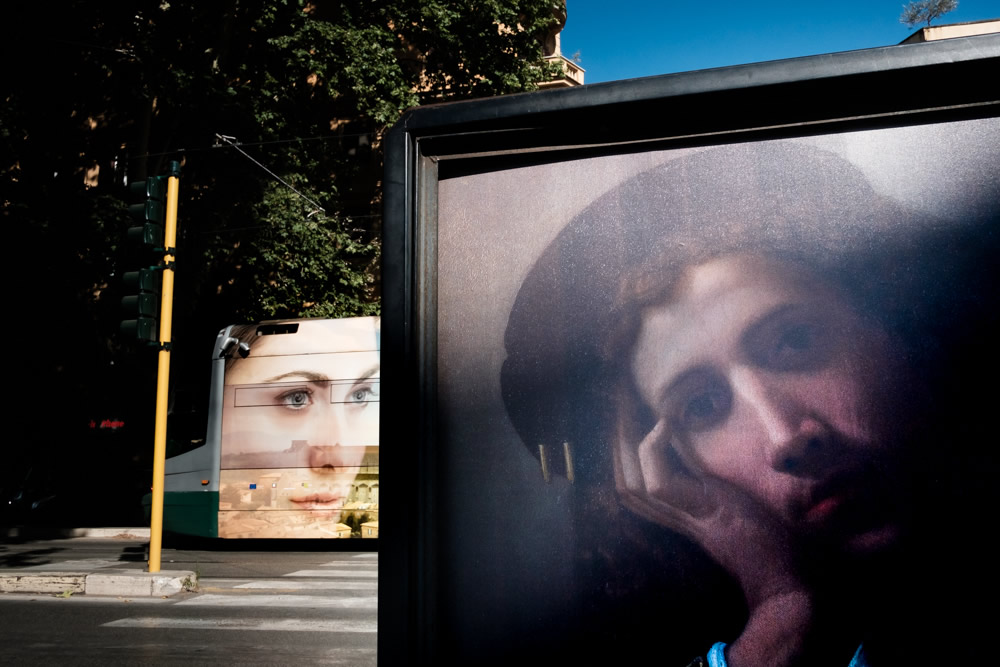
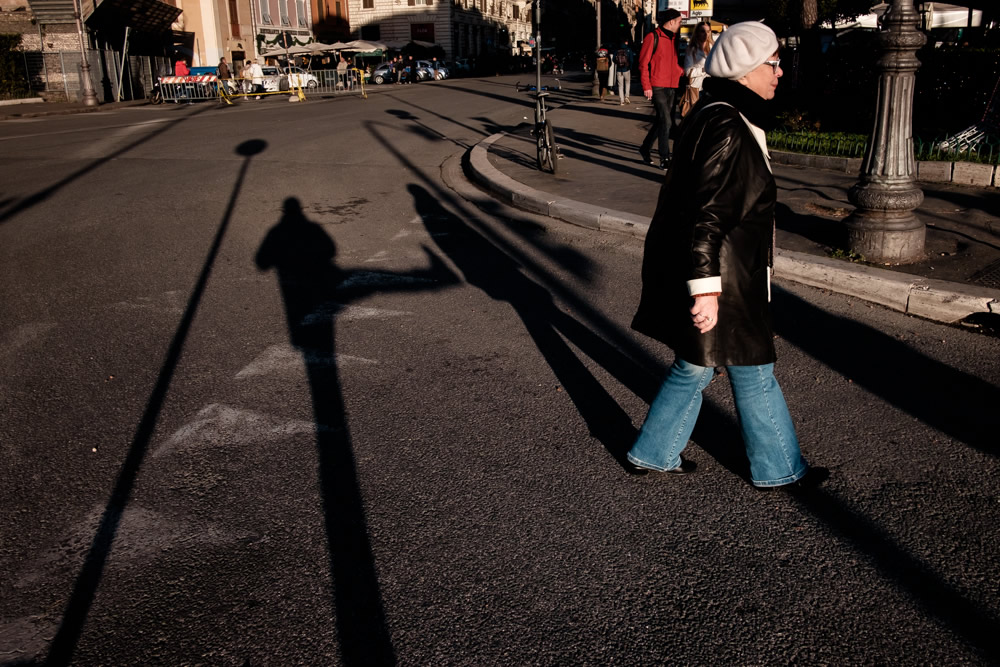
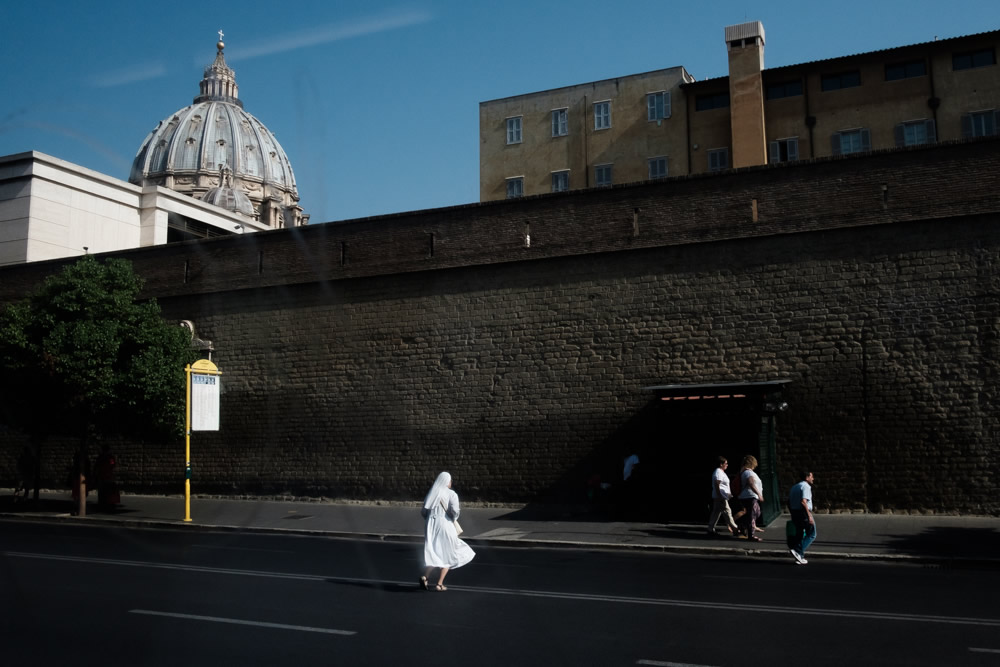
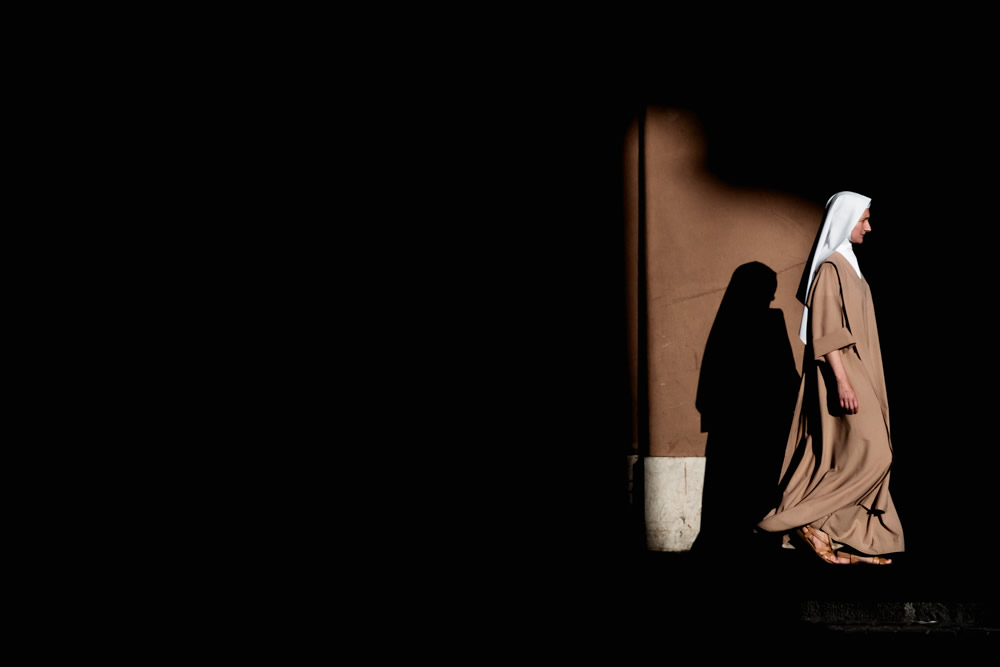
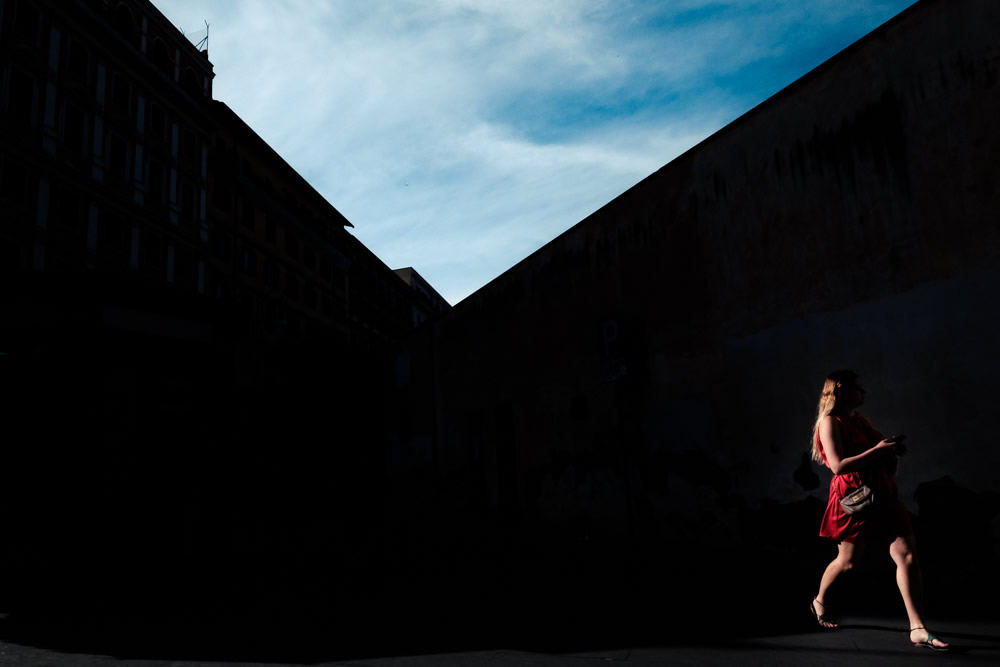
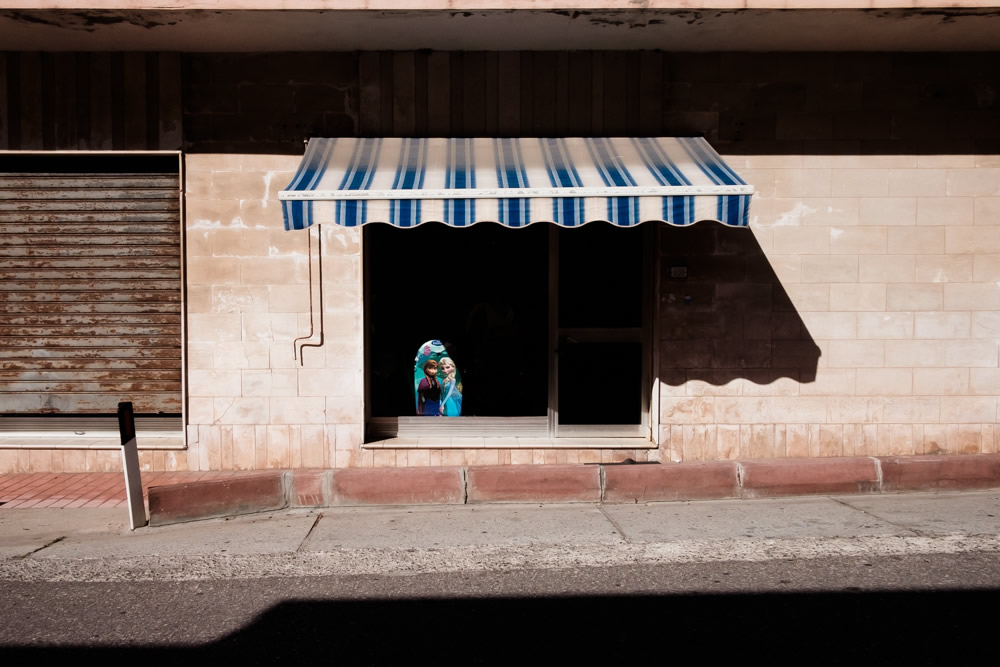
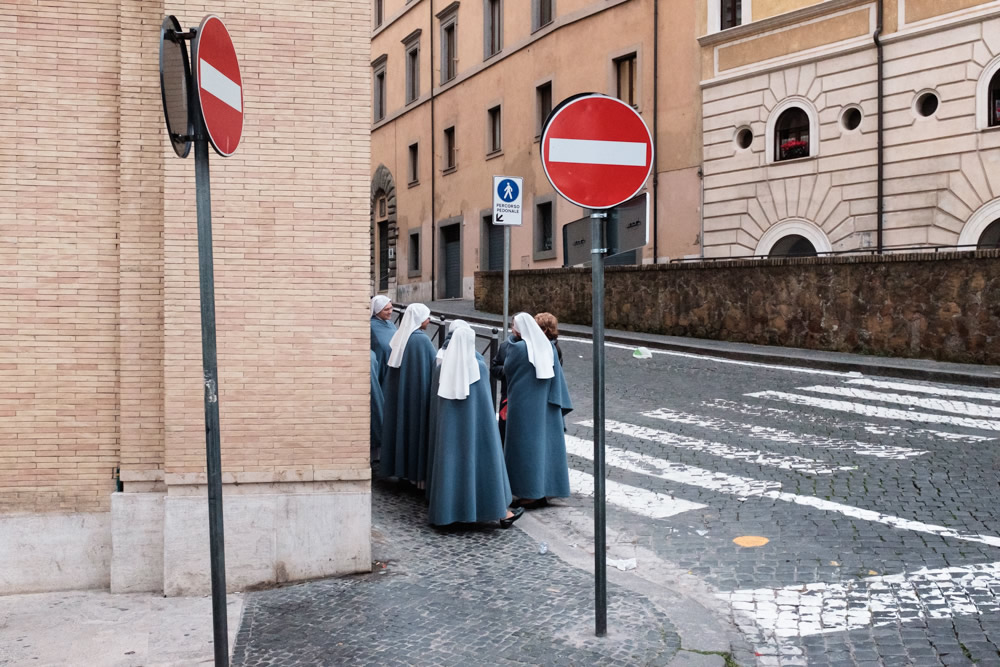
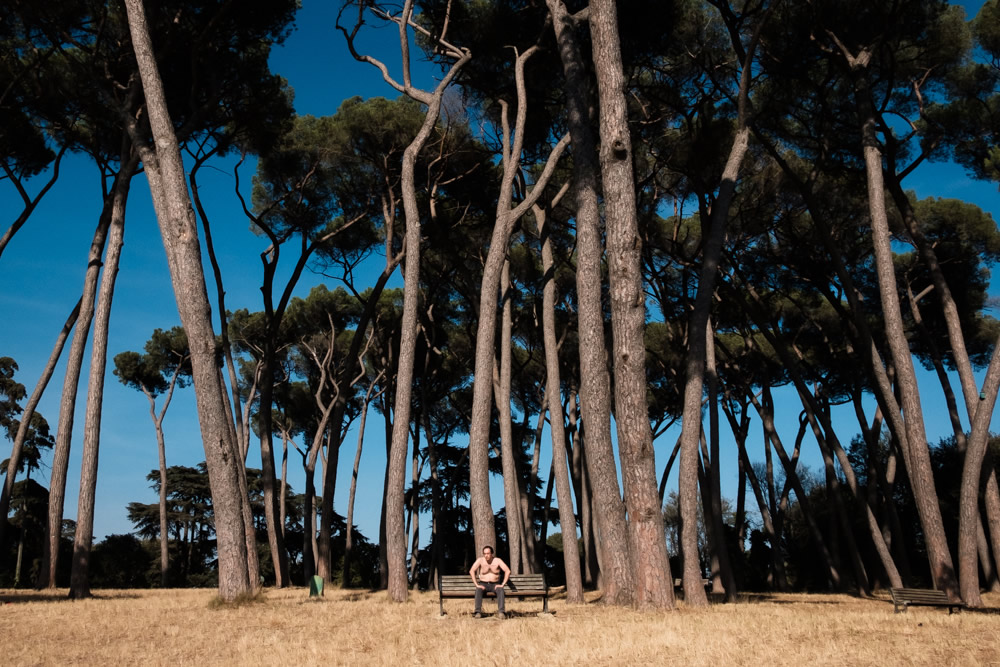
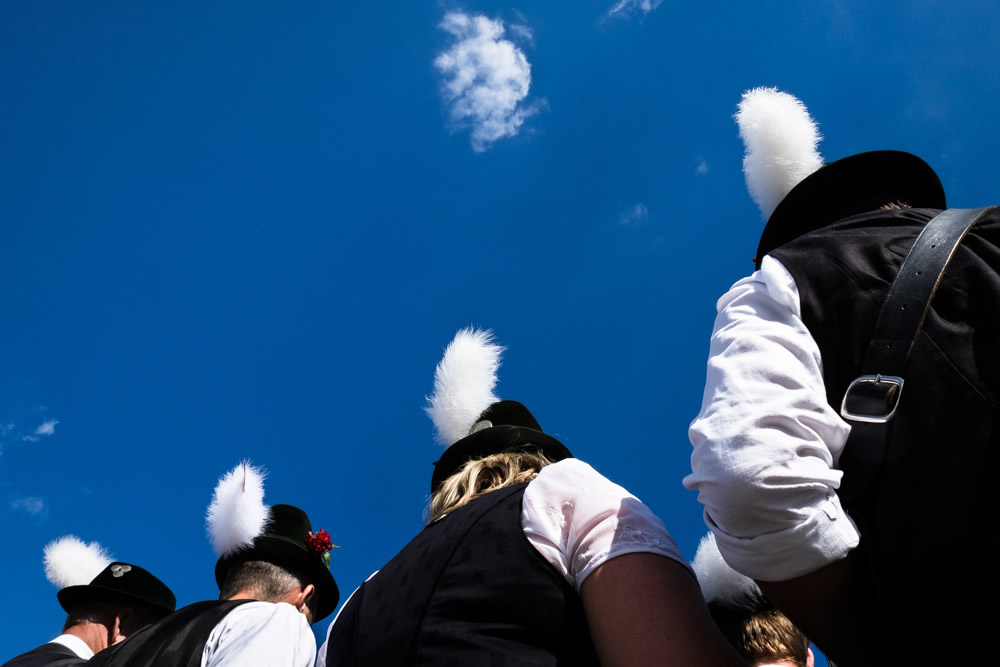
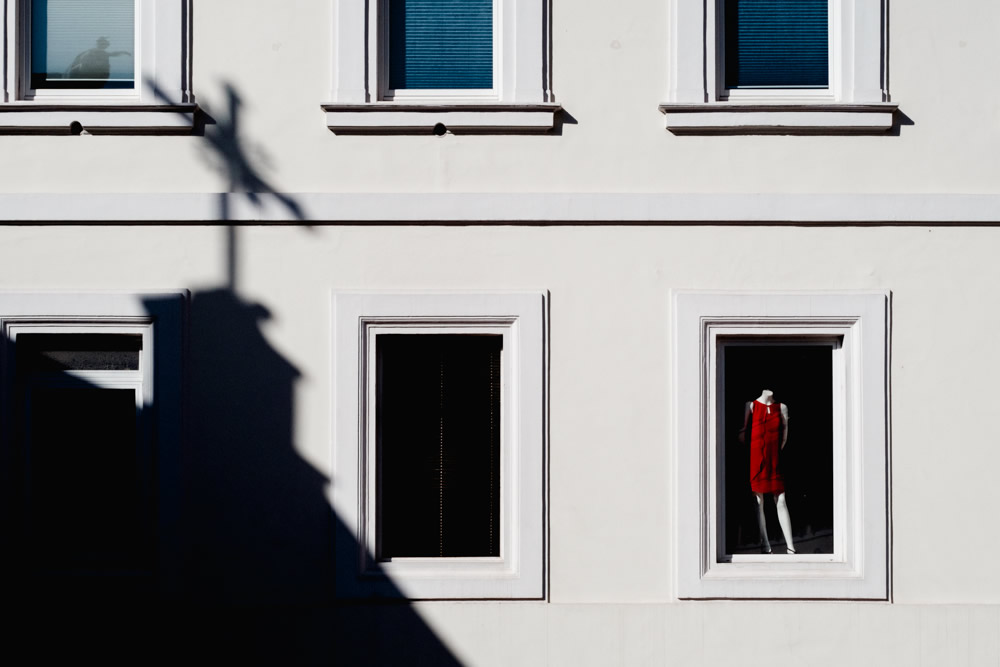
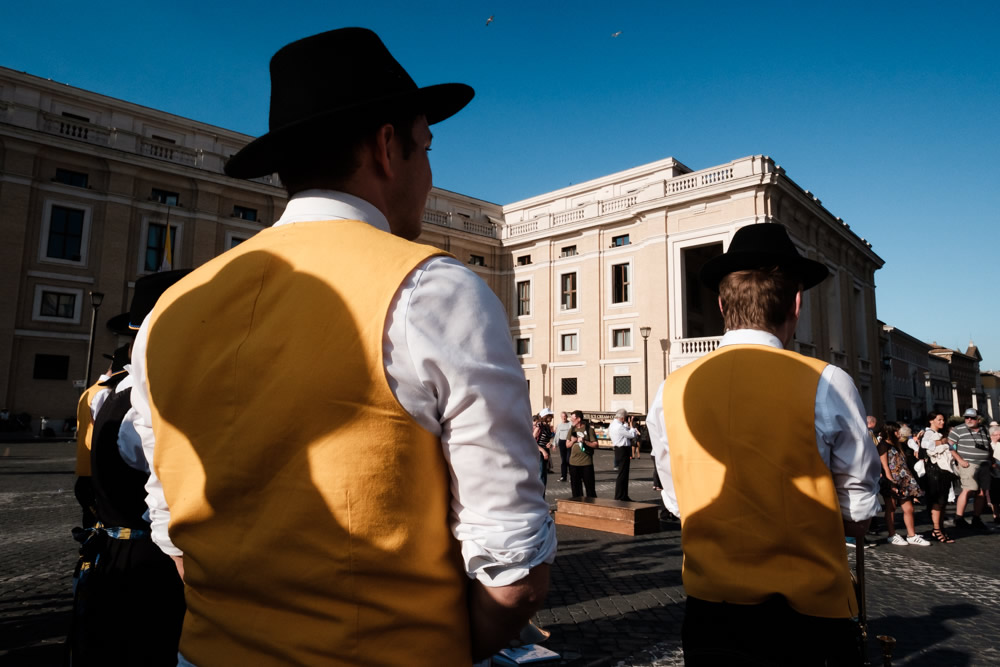

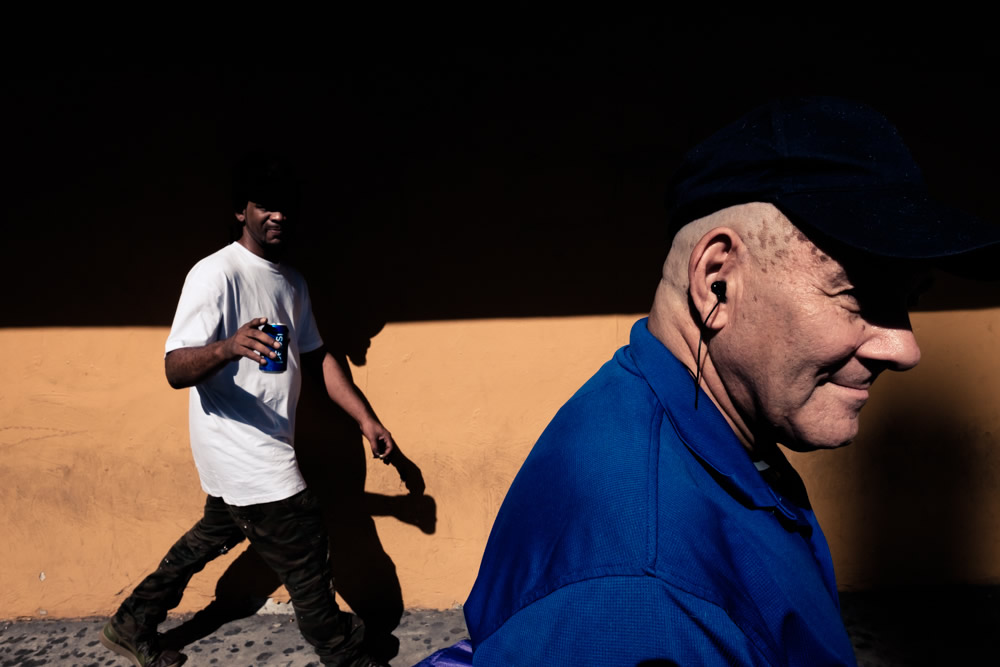
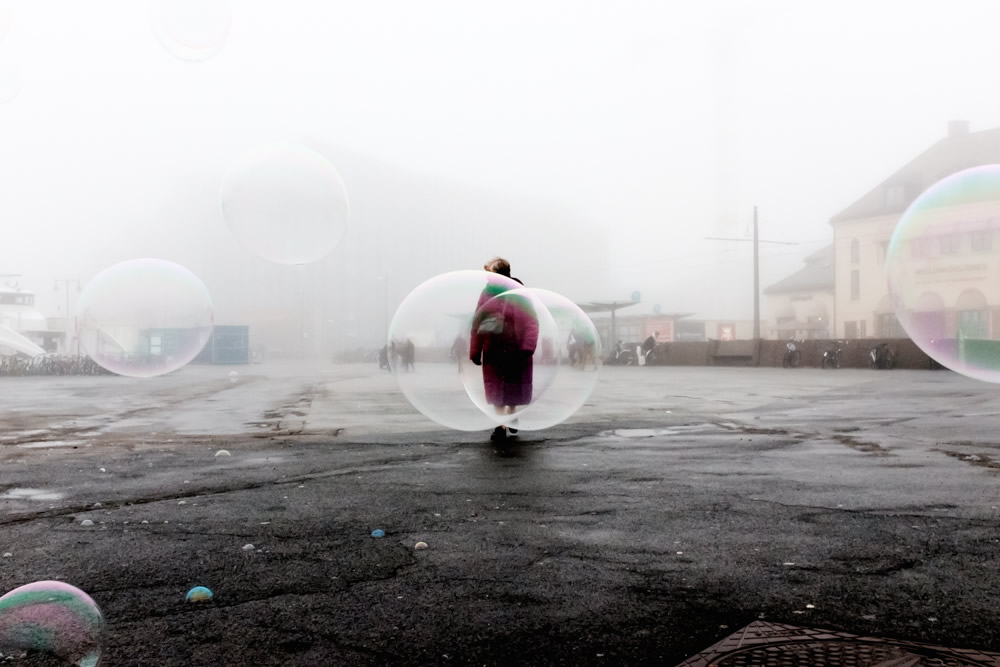
You can find Reuven Halevi on the Web:
Copyrights:
All the pictures in this post are copyrighted Reuven Halevi. Their reproduction, even in part, is forbidden without the explicit approval of the rightful owners.

